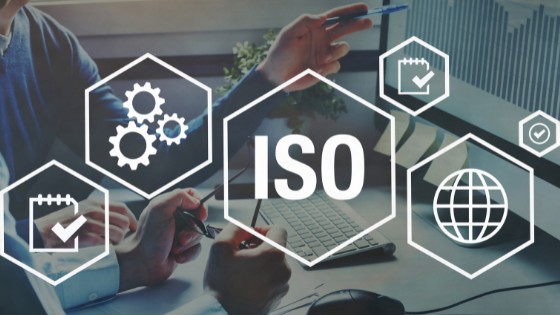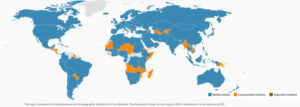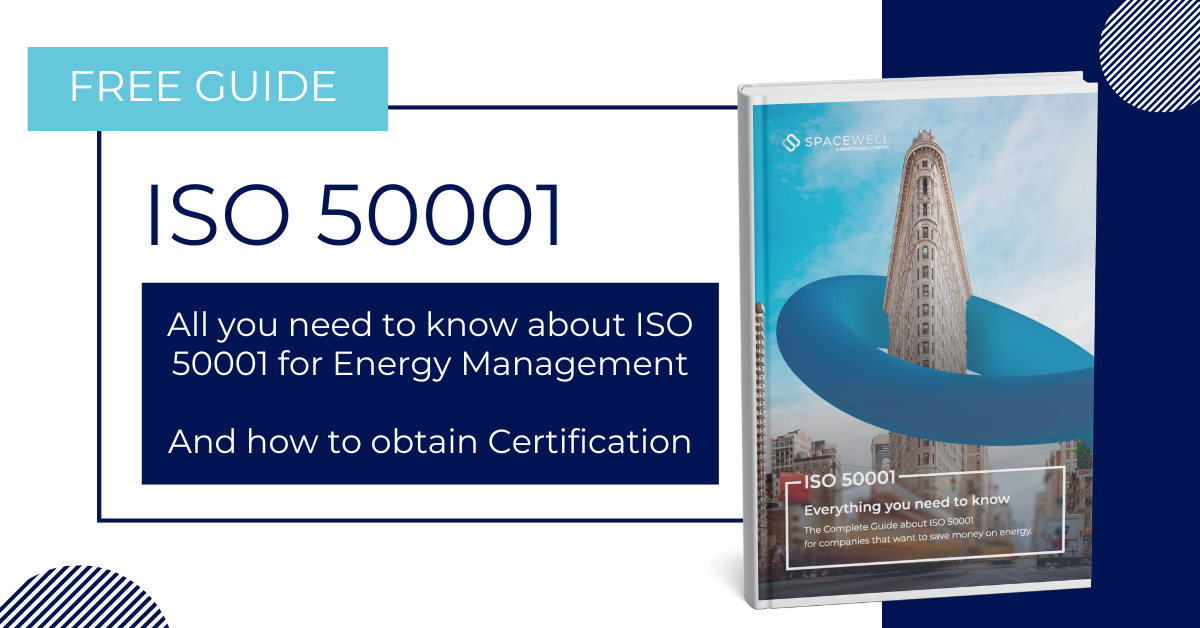Can you tell the number of ISO certifications or quality standards your company holds? Difficult, isn’t it?
The world of professional certifications is expanding to harmonise quality standards between countries. Although they are becoming increasingly widespread, you may have doubts regarding their usefulness.
You are not the only one to think so.
International certifications are extremely useful in setting standards for organisations and companies. They help define quality standards in regards to the extent to which companies are respectful of the environment, whether resources are managed efficiently or how personal data and information are handled. In this article, we review the main standards and certifications of the International Organization for Standardization (ISO), as well as their relationship to energy and to each other.
ISO Certifications and Standards
ISO certifications can easily be recognised by their respective numbering as they are very specific: each of them has a purpose. Hence, if you use them regularly, you will immediately associate ISO 9001 with quality, ISO 41001 with the environment, or ISO 50001 with energy efficiency.
Before we get into the subject, let’s briefly review the history and rationale of ISO.
Headquartered in Switzerland, ISO is an international organisation, with 167 members from almost all over the world as you can see on the map.
Source: ISO
The scope of their standards is international, which means that if your company holds an ISO certification, it will be recognised in other countries. Their goal is to improve processes in companies, to set standards for what is considered correct, efficient and respectful.
First of all, let us clarify four points:
- The first thing is the difference between norm (or standard) and certification. Norms are the guideline to follow while recommendations are the quality standard. But not all standards have a certification option. Your company can have high-quality standards, based on ISO standards, and not be officially certified.
- These standards and certifications are not mandatory. A company must be willing to implement them. In some cases, you may feel constrained to do so if they become prevalent in your sector, but it is up to each organisation to take the step forward. Although not a legal requirement, in some public tenders or subsidies, certification may be a requirement for participation.
- ISO as an organisation is not responsible for certification, they only create and update international standards. To become certified, you must go to authorised local companies or institutions such as UKAS, the National Accreditation Body or the British Standards Institution (BSI) in the UK.
- In the UK there are two main institutions related to ISO. First, the Department of Business, Energy and Industrial Strategy (BEIS) is in charge of everything related to standards-making with the aim of meeting the needs of the country’s industry and making the processes more relevant and business friendly. They work closely with the British Standards Institution (BSI). Indeed, the latter is the National Standards Body (NSB) in charge of the country’s publication of international and European standards.
The Most Popular ISO Certifications in the UK
Now that you have the context of ISO, let’s review the best-known ISOs in the UK and in Europe.
ISO 9001 Quality Management
This is one of the most widely used certifications in the world since it was created in 1987. Its objective is to define quality standards in the production of a product or service, the involvement of management teams in improvement processes, as well as the focus on customer needs and the continuous progress of processes.
ISO 14001 Environmental Management
ISO 14001 is concerned with reducing the environmental impact of companies, from materials and waste management to recycling and waste policy. Within the same family of standards, we can also find the ISO 14005, specially designed with the same criteria but adapted to SMEs, dividing the process into more flexible phases.
Although the numbers are similar, this standard should not be confused with ISO 41001, which is designed for sustainable facility management and is less known.
ISO 45001 Occupational Health and Safety
Little related to energy, but widely used in certain sectors such as construction or factories, this ISO Standard evaluates the processes of risk prevention and health care in the workplace. It is based on the reduction of risks and accidents, and the establishment of protocols to ensure the physical and mental health of workers.
ISO 50001 Energy Efficiency
This standard is there to improve the energy efficiency of your organisation. To achieve it, you will need to define a clear strategy, energy efficiency targets, an internal policy and regular monitoring of your consumption and internal processes.
The energy situation has increased the popularity of this certification. In the UK, 1,277 ISO 50001 certifications were obtained in 2020. It is the second country in Europe behind Germany (6,436), and ahead of Italy (1,242), France (779) and Spain (637). All this data can be found in the ISO’s 2022 report.
If you are thinking of obtaining this certification, implementing an Energy Management System such as the Spacewell Energy Platform will help you with the organisational, monitoring and management part. An EMS is not enough to achieve this certification, but it will make the process much easier for you.
If you are interested in implementing this Certification in your organisation, download this guide on ISO 50001 or access this webinar on the implementation of ISO 50001.
ISO 27001 Information Security
In digital transformations and cyber regulations such as the General Data Protection Regulation (GDPR) lie opportunities and challenges for every organisation. This ISO standard aims to ensure that data information is secure, and protected and that the company has reliable processes in place to manage it. It might sound complex, but step after step it is possible. As an example, Spacewell Energy has achieved this certification, and we share our journey in this article on ISO 27001 so that you can get a better understanding.
Most of these ISO standards might have sounded familiar, but you might be surprised to know that the scope of study and action of ISO Certifications is limitless. Indeed, they cover topics as diverse as biodiversity, food safety, circular economy and, of course, energy management.
ISO Standards and Energy Management
As you have seen in the previous section, ISO 50001 directly addresses energy management and efficiency, through the implementation of an Energy Management System, monitoring of energy consumption and continuous improvement processes in your organisation.
But in addition to those we have seen in total, there are about 200 energy-related standards. These include renewable energy, storage, carbon emissions, hydrogen, nearly zero-energy buildings, solar energy and many more. All of them are related to the UN Sustainable Development Goal (SDG) number 7: Clean and Accessible Energy.
Let us highlight 4 of them:
- ISO 52000 addresses the energy performance of buildings. Developed by the technical committee 163, its objective is energy management in a global way, to contribute to the reduction of emissions from companies and their buildings, as explained in this article on ISO 52000.
- ISO 50015 refers specifically to Measurement and Verification projects for any type of energy. It can be applied individually or integrated with ISO 50001.
- Standard 50047 focuses on energy savings. It includes the definition of targets and baselines. The standard is developed by the technical committee 301, dedicated to Energy Management and Saving responsible for ISO 50001.
- ISO 50002:2014 focuses on Energy Audits. It aims to “harmonise common aspects of energy audits in order to improve clarity and transparency” (ISO).
ISO Integrated Management Systems
Depending on the needs of your company, the sector you work in, the geographical scope of your operations and much more… You will be more likely to go for an ISO certification or another. However, if you would like to obtain more than one, or add a new one to an existing one, it means that you are taking the step toward Integrated Systems.
The idea is that you can work on the necessary changes in your company and prepare for the certification process at the same time for multiple certifications. Although each one is different, the process of continuous improvement (or CIP) is similar in all of them, especially in terms of management involvement, processes and company policies.
The main benefit of opting for integrated management systems is the consistency between the various management systems, as well as saving time in the ISO certification process.
If you are considering getting certified, we hope this article was useful. If obtaining the ISO 50001 certification is your goal, then contact us to see how Spacewell Energy can help you in the process.





